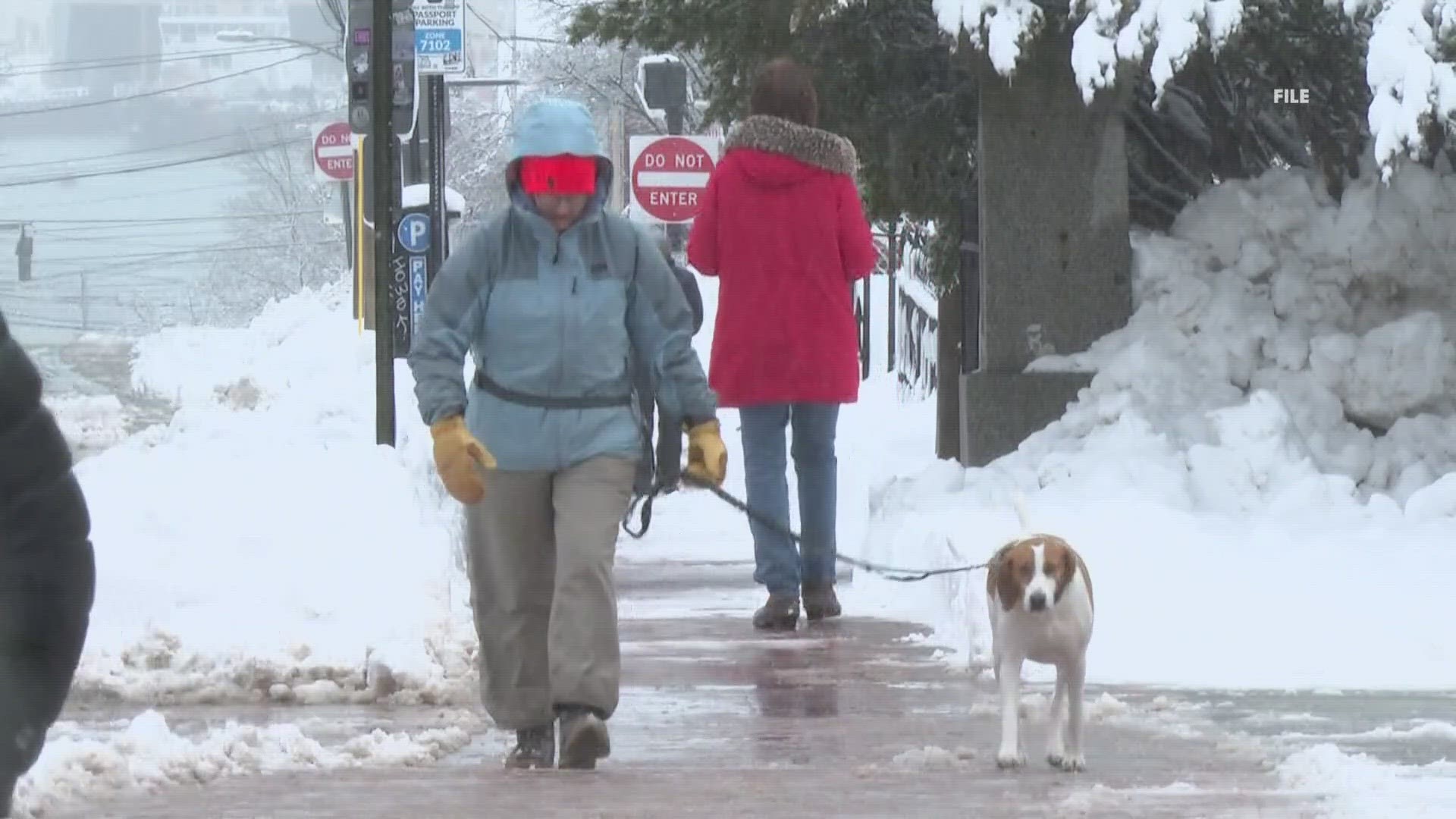PORTLAND, Maine — The data show that global temperatures have been rising since the early 1900s. Here in Maine, we aren’t immune to that trend. The average temperature in Portland has risen about 4 degrees since the 1940s. In Bangor there’s been about a 3 degree rise since the 1950s, and Caribou clocks in with 4 degrees, as well.
That’s the big picture on temperatures. But what about snow? Is climate change causing Maine to receive less snow than in the past? The answer may surprise you.
Let’s start with Portland. It's not the snowiest area in Maine, to be sure, but it's home to some of the best snowfall data in the state.

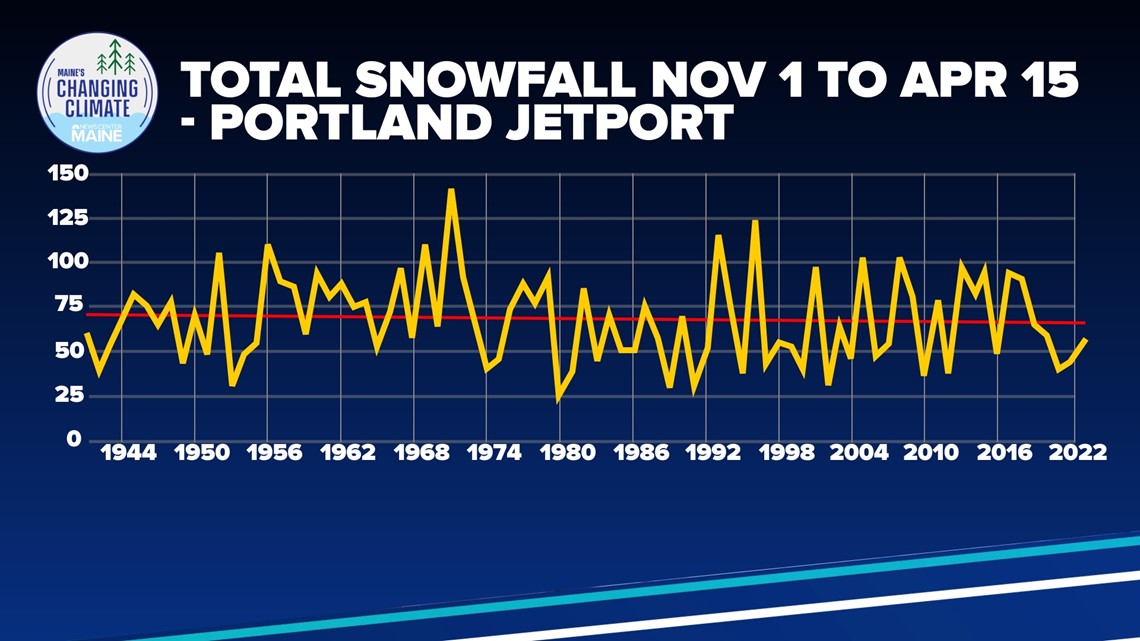
Right away you can see there’s basically no real trend in snowfall from Nov 1 through April 15 each year. You’ll notice I used those dates because meteorological winter is technically Dec. 1 through March 1, but that in no way encapsulates our winter in Maine.
Moving north to Bangor you’ll actually see a slight uptick in snowfall amounts, though the line fit is far from perfect.

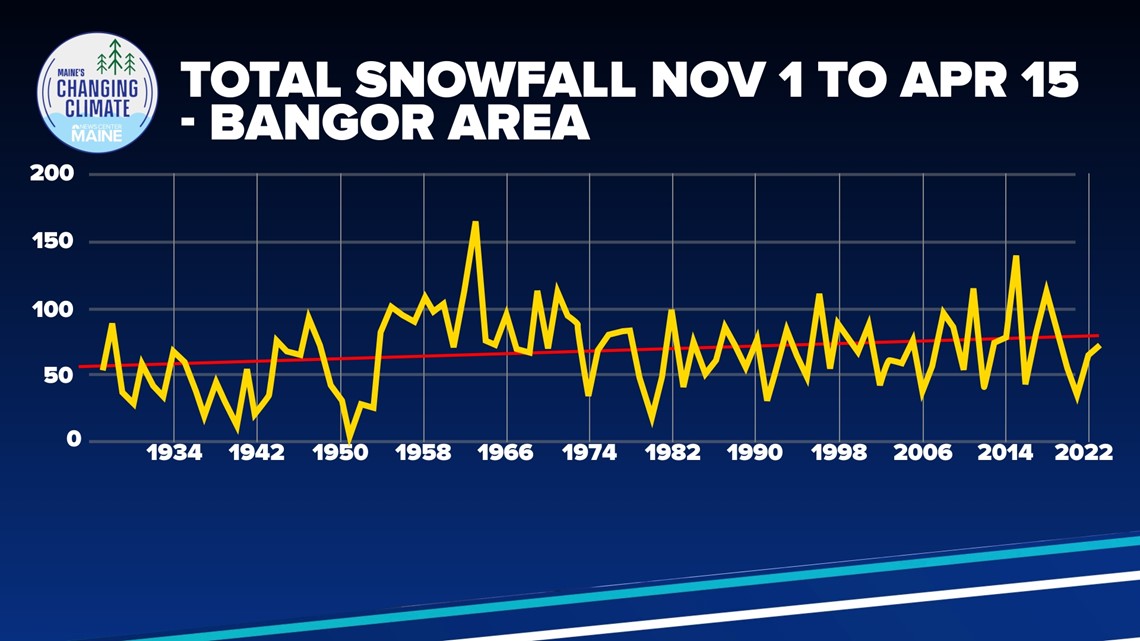
But we can say with confidence there’s no measurable decline in snowfall amounts there.
Finally, let’s look at Caribou. Here we also see a modest upward trend in total snowfall.

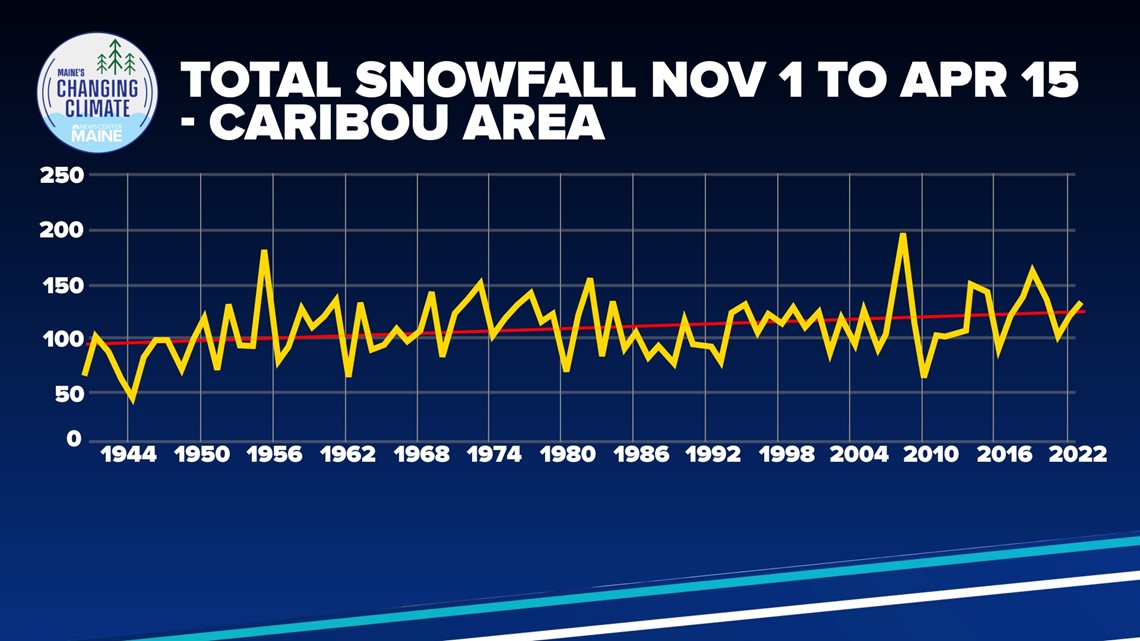
So how could this be? How can a warming planet lead to flat or increased snowfall amounts?
The answer is multifaceted, perhaps most importantly in Maine. Our winter temperatures are sufficiently cold such that even an increase in average temperature does not put us above freezing for most winter systems. That’s especially true in Caribou and Bangor. Eventually, however, that will no longer be true.
A study by the University of Vermont found that downhill skiing will be viable there until about 2050. That rough approximation holds for most of Maine as well as the temperature profiles are similar.
The other reason there hasn’t been a steep decline in snowfall amounts yet is because our sea surface temperatures are routinely way above average during the winter now.

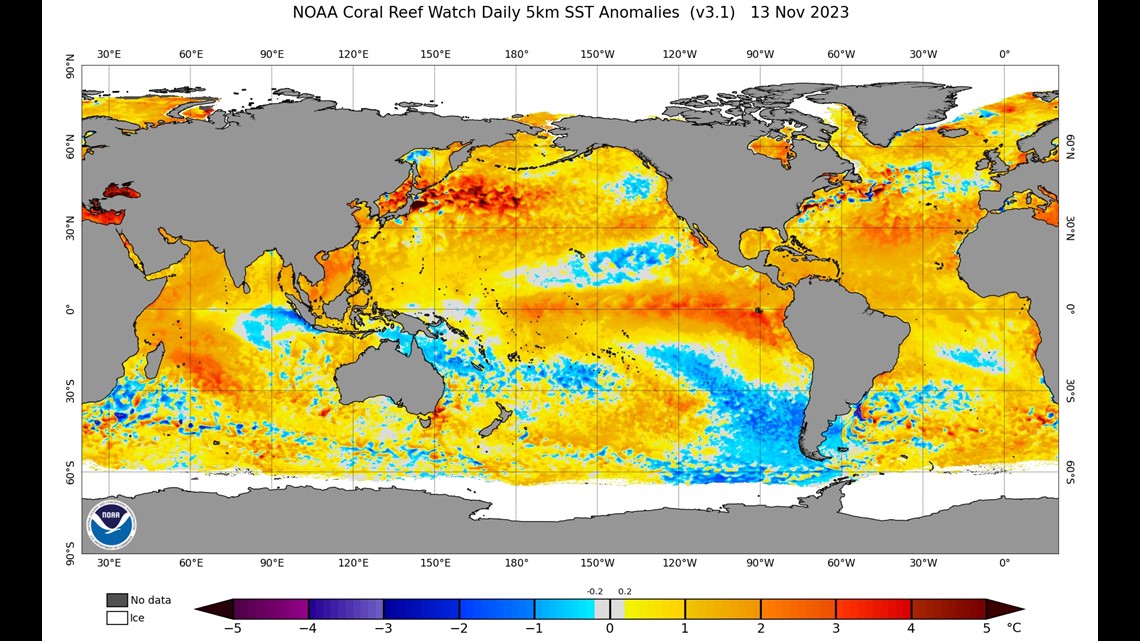
That increase in ocean warmth allows more moisture to be introduced to our coastal storms and nor’easters. For each 1.8-degree increase in temperatures, the air can hold about 7 percent more moisture. As long as temperatures can sneak to freezing, that extra moisture can come out in the form of big snow.
Now, all is not well when it comes to winter sports in general as the climate warms.
The increase in average temperature has led to later ice-in and earlier ice-out times at most New England lakes and ponds. And while snow totals may be similar, many recent winters have featured rainstorms and thaws between the storms, which leads to a reduction in snowpack depth and length of snowpack season.
So as our climate continues to warm, Maine eventually will receive significantly less snow. But for now, a big winter is still very much in the cards in any given year.

